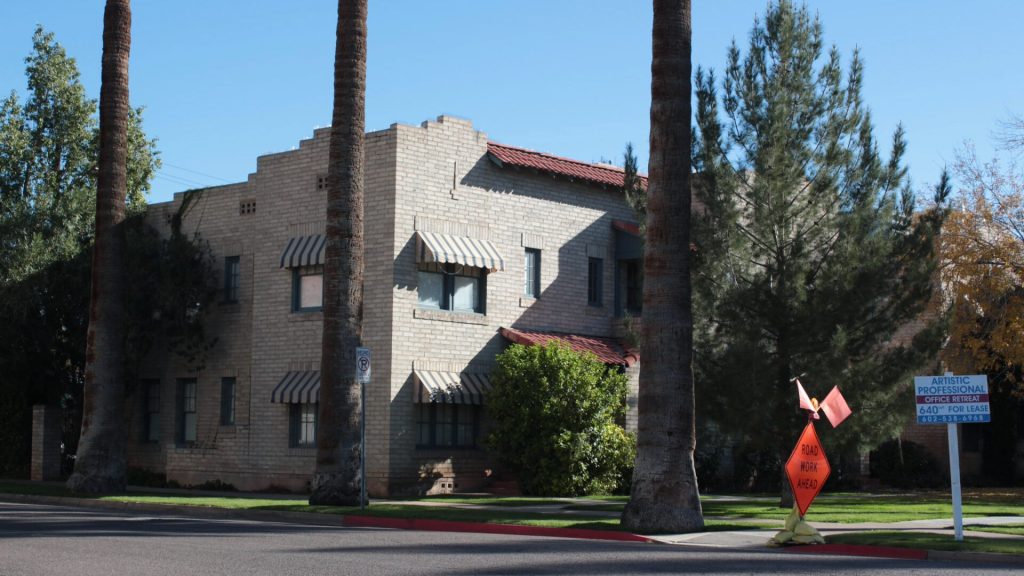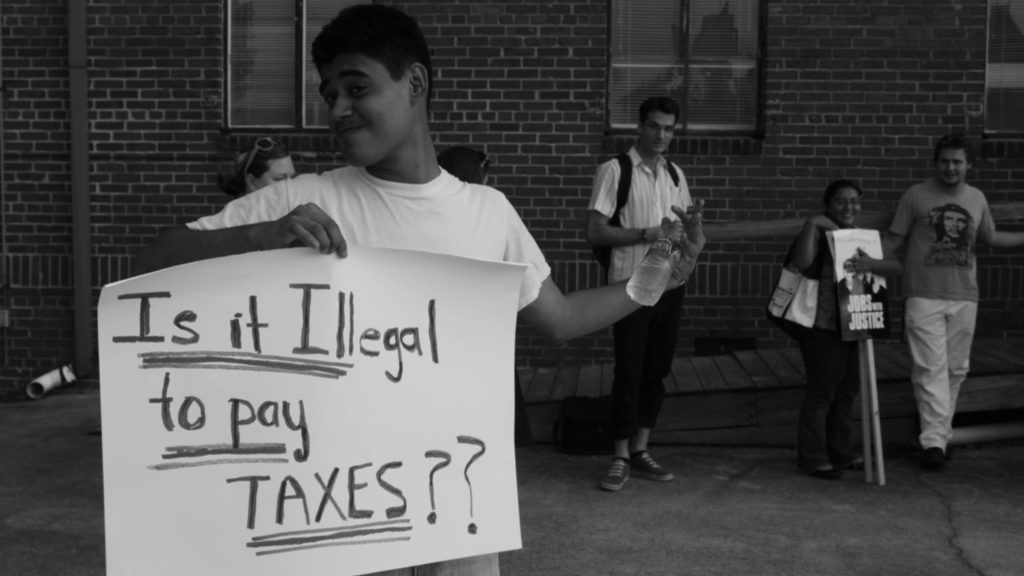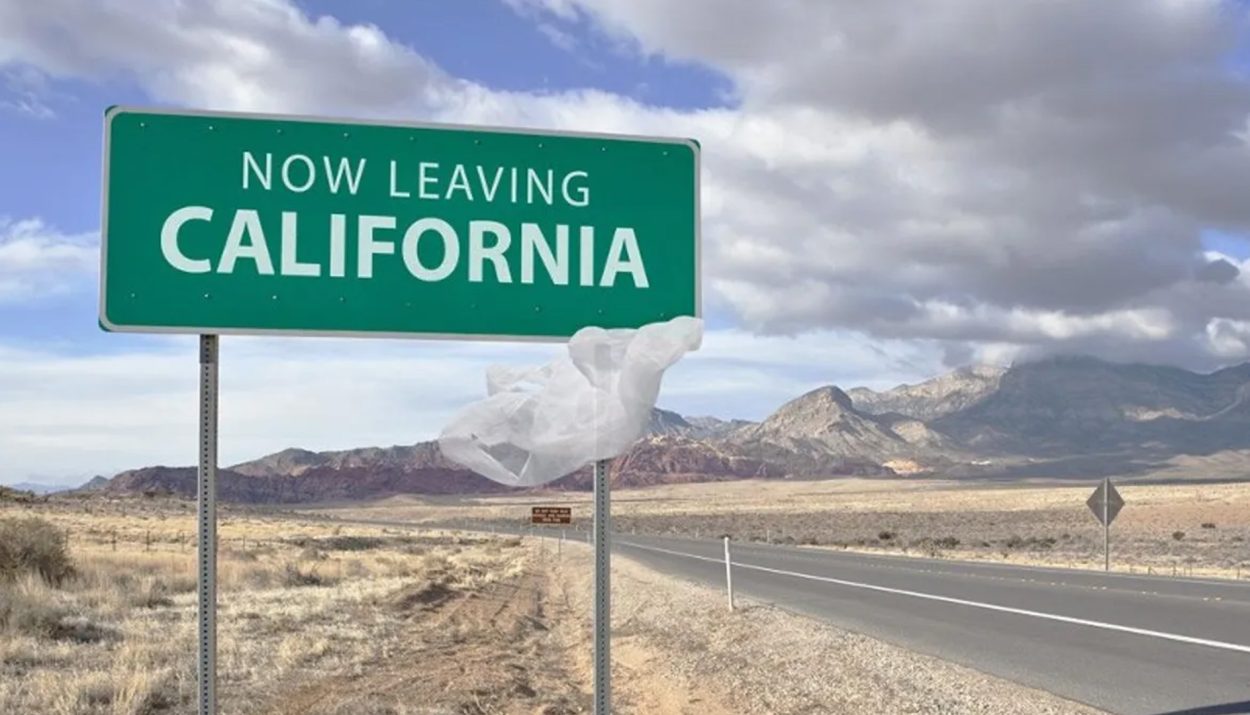The iconic Eagles song is a great way to refer to California’s new Exit Tax, which affects residents who want to leave the expensive state. The wealth tax the state has introduced has seen a lot of people wanting to quit the state. Let’s see how this new Exit Tax is faring and who it’s affecting.
Caught In a Vice Grip
There are a number of things that stand out when it comes to California’s attempt to address its debt. One of them is how much they think the richest are not paying their fair share.

To address this, the government passed a wealth tax that saw even those who lived in the state only part of the year pay massive amounts. Many were not happy and decided to leave.
Except You Can’t Just Leave Anymore
California’s new exit tax intends to make it more difficult for residents to leave, turning the state into a place where even people who’d like to go somewhere else can’t do so.

But why is California forcing people to pay such large amounts of cash for living or leaving the state? The secret is the state’s overinflated budget deficit, which has plagued it for years.
A Deficit Budget That Threatens All
California’s current budget deficit is around $68 billion. Deficit budgets aren’t new-most states and even the US government run on borrowed money, but they can usually afford the payments.

Unfortunately, if the income the state gets isn’t enough to service the debt, it’s on thin ice. To address this significant shortfall, the state is levying a heavy wealth tax on individuals who call the state home.
Weaponized Attorneys And Asset Valuation
The wealth tax doesn’t center just on a person’s income but extends to include all of their assets held in different parts of the world. Holders of assets over a threshold level will be required to pay the tax.

What’s more, attorneys are encouraged to investigate high-net-worth individuals, and if they’re found to be holding out on the state, the attorneys can sue them on behalf of California and make bank doing so.
Closing the Door To Those Who Want to Leave
If you have a lot of money and California is making it difficult for you to live there, you can buy a plane ticket (or take your private jet) and go somewhere else to live. That is, till now.

California’s exit tax calculates a flat tax based on the current value of a person’s assets. The tax was introduced to get something from wealthy individuals who are trying to flee the wealth tax for greener pastures.
Taking The Worst Approach
The exit tax affects everyone equally, which is what the state was going for. Unfortunately, that means that people who have invested heavily in California’s real estate market will be taxed way beyond their liquid asset holdings.

Even those who have endured financial hardship thanks to California’s hostile taxation regime and contracting economy can’t escape, as they’ll still have to pay the same percentage of their assets in tax.
Other States Are Taking Notice
California leads the way in its “tax the rich” initiative, and other states are looking at them for leadership. Wealth taxes have already been debated in several different states, including Massachusetts and Georgia.

These states may also see the benefit of implementing an exit tax to dissuade the wealthy from trying to leave. Unfortunately, this is likely to backfire badly.
Driving Wealth Out Of The State
Most wealthy individuals weigh things on a risk-to-reward ratio. In this case, staying in California is likely to see them lose more of their money every year than the one-time tax to leave.

California is shooting itself in the foot by driving away so many business owners who help to prop up the economy. Once businesses start folding, the economy will contract. And no wealthy people mean no one to shake down for taxes.
Extended Eviction Moratoriums Partially to Blame
California currently has an eviction moratorium, which has been extended for three years. This moratorium ensures that landlords cannot evict tenants who are late on rent.

The moratorium strains landlords and property owners and makes it less lucrative to hold onto property. Legislation like these also forces dependency on the state, adding to its tax burden.
Many People Are Up In Arms
While this affects the wealthy the most, most Californians are unhappy about the situation because the exit tax would also affect them if they decided to leave the state.

Some contended that forcing people to pay to leave the state was unconstitutional. Another suggested that Californians bring this to the Supreme Court’s attention since some rights were likely violated.
Not The First Time California Stepped on Rights
One commenter noted that California has done something similar in the past. They referenced California’s “source tax,” which charged people’s retirement checks if they got them from California.

The Supreme Court ruled the practice unconstitutional, and the state had to walk its tax back. However, the fact that it tried sets a dangerous precedent.
Freedom of Movement is a Fundamental Right
Taxing people to move between states seems unconstitutional. The US Supreme Court ruled in Crandall v. Nevada, 73 U.S. 35 (1868), that freedom of movement was a human right.

If that’s so, California is, once again, trying to ride roughshod over the rights of its citizens. In situations like this, the Supreme Court exists to ensure it doesn’t happen.
Not a Nice Place to Live Anymore
While Hollywood paints an enjoyable picture of California, the reality is that with all the punitive taxation, housing crisis, and high cost of living, the state isn’t a great place to live anymore.

Other states considering similar taxes should take note. This isn’t the direction you want to take unless you really dislike having happy citizens.
Killing California By Taxation
It’s not often one sees a state attempt suicide by taxation, but that’s precisely what’s likely to happen in California. The state can pay off its loans for a short season as many people leave.

Over time, it’ll settle into a grim reality where businesses have mostly left, with a few holding on and trying to pay their employees while the state taxes the owners into oblivion.






